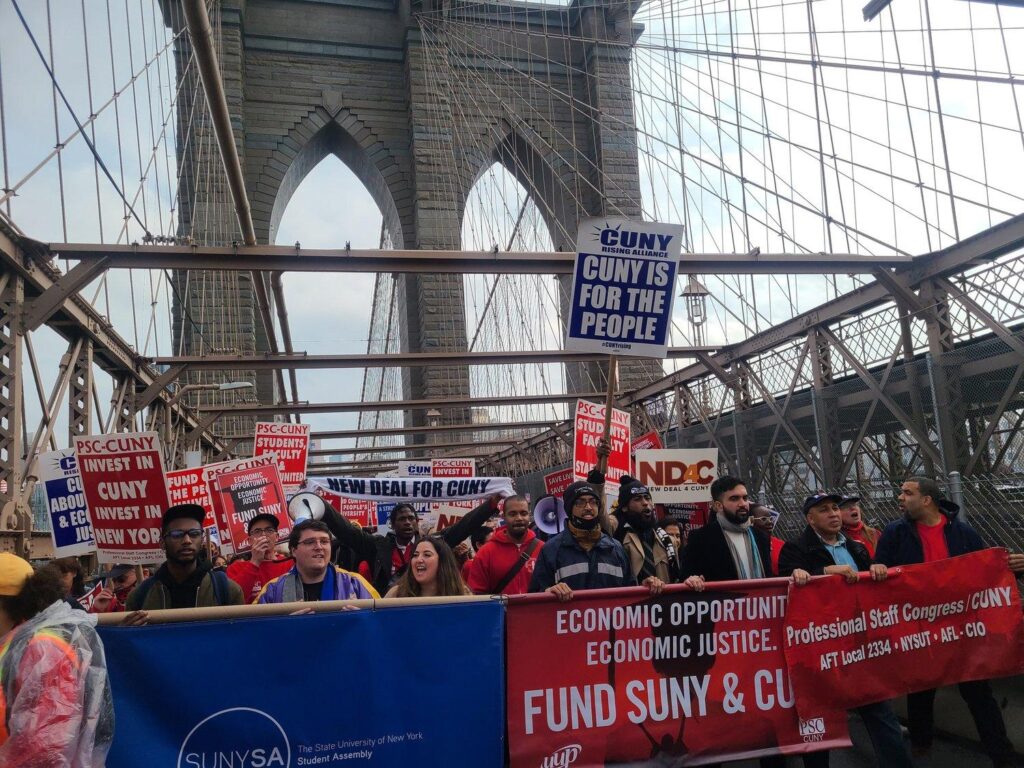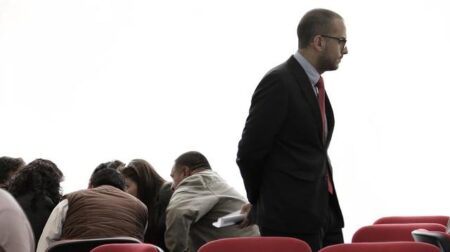City University of New York Faces Research Funding Crisis Amid Federal Grant Suspension
Federal Grant Suspension Creates Financial Strain on CUNY’s Research and Faculty
The recent suspension of federal grant disbursements has placed significant financial pressure on faculty and researchers throughout the City University of New York (CUNY) system. This abrupt freeze has forced many ongoing research projects to come to a standstill, threatening to delay or even terminate critical academic work. The impact extends beyond research labs, affecting classroom instruction and limiting student participation in hands-on learning experiences.
In light of these challenges, the CUNY faculty union is actively lobbying for immediate financial intervention from New York City authorities. Their proposals focus on:
- Emergency municipal grants: Targeted funding to keep active research projects afloat.
- Additional financial support: To secure salaries for graduate assistants and research personnel.
- Investment in research infrastructure: Maintaining laboratory operations during funding interruptions.
Union leaders warn that without swift city support, CUNY’s reputation as a center for pioneering research and innovation could suffer irreparable damage.
| Area Affected | Current Situation | Requested City Assistance |
|---|---|---|
| Research Funding | On hold | Emergency Grants |
| Graduate Assistant Salaries | Uncertain | Supplemental Payments |
| Laboratory Operations | Restricted | Infrastructure Funding |
Union Urges City Leadership to Provide Immediate Financial Relief
Confronted with the sudden halt in federal funding, the CUNY faculty union has made an urgent appeal to city officials for emergency financial support. The freeze jeopardizes a wide array of research endeavors vital to the university’s academic excellence and innovation capacity. Union representatives stress that without prompt municipal funding, projects spanning public health, environmental studies, and urban policy risk suspension, adversely affecting both faculty and student researchers.
The union highlights several critical areas impacted by the funding gap:
- Continuity of Research: Many projects are paused, delaying important findings and publications.
- Job Security: Temporary and adjunct research staff face uncertain employment prospects.
- Student Research Opportunities: Reduced funding limits graduate and undergraduate participation in research activities.
City officials are being called upon to consider reallocating emergency funds or creating special appropriations to protect CUNY’s research infrastructure until federal grants resume.
| Impact Area | Current Status | Requested City Support |
|---|---|---|
| Project Funding | Suspended | Immediate Release |
| Research Personnel | At Risk | Bridge Salaries |
| Student Programs | Scaling Back | Maintain Stipends |
| Facilities | Operational but Limited | Maintenance Support |
Consequences for Students and Innovation Amid Funding Instability
The freeze on federal grants is not only disrupting research but also hindering student development and academic innovation at CUNY. Students, who often rely on research assistantships and project involvement to gain practical experience, are facing diminished opportunities. This interruption threatens to stall advancements in critical fields such as public health, environmental science, and urban development, where CUNY students have historically contributed valuable insights.
Primary concerns include:
- Extended Graduation Timelines: Reduced funding for research roles and materials may delay students’ academic progress.
- Fewer Collaborative Research Projects: Financial constraints jeopardize interdisciplinary initiatives that foster innovation and knowledge exchange.
- Career Preparedness Challenges: Lack of hands-on research experience could weaken students’ competitiveness for graduate programs and employment.
| Area Affected | Potential Impact | Proposed Mitigation |
|---|---|---|
| Research Materials | Shortages of essential supplies and equipment | Prioritize city funding allocations |
| Student Employment | Loss of research assistant positions | Establish local funding grants |
| Project Progress | Interrupted or abandoned studies | Emergency financial support |
Strategies for Long-Term Research Funding Stability at CUNY
To reduce vulnerability to federal funding fluctuations, CUNY must diversify its financial resources and implement sustainable funding models. Recommended policy actions include:
- Creation of a City-Supported Research Endowment: Establishing a dedicated fund to provide consistent financial backing regardless of federal budget changes.
- Strengthening Partnerships with Private and Philanthropic Entities: Leveraging collaborations to access new capital and foster innovation.
- Adopting Transparent, Merit-Based Funding Allocation: Ensuring resources are directed toward high-impact research projects to maximize outcomes and accountability.
| Recommendation | Expected Outcome | Implementation Timeline |
|---|---|---|
| City-Funded Research Endowment | Financial resilience and stability | 1-2 years |
| Public-Private Partnerships | Diversified funding and innovation | 6-12 months |
| Merit-Based Fund Distribution | Improved research quality and impact | Immediate |
Additionally, CUNY leadership should advocate for policy reforms at the city and state levels that recognize research as a driver of economic growth. Potential measures include tax incentives for corporate research investments and streamlined grant application processes tailored to public universities. Enhancing budget flexibility will enable researchers to adapt quickly during funding interruptions, preserving momentum in critical projects.
Conclusion: The Urgency of Local Support to Sustain CUNY’s Research Excellence
As the federal grant freeze continues to impede vital research at CUNY, the faculty union’s call for city funding emerges as a pivotal effort to close the financial gap. Securing municipal support is essential not only to maintain ongoing projects but also to uphold CUNY’s status as a leading institution for innovation and scholarship in New York City. The response from city officials in the coming months will be crucial, potentially setting a new standard for how public universities navigate funding uncertainties amid shifting federal priorities.













